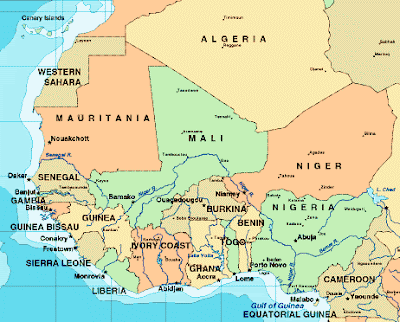
It has been somewhat of a long two weeks sitting through these training sessions. Quite frankly, I am ready for a vacation, which is great because I am about to embark on a three-week excursion through this expansive country with my sister. Our plans right now include heading East into the city of Djenné on Sunday, December 19th after she flies into Bamako, taking a 5-day guided hike through the cliff-side dwellings of Dogon country, spending a few days at my site, celebrating New Year's Eve in Ségou, enjoying a few relaxing days on the banks of Lake Manantali in Mali's Western Kayes Region alongside monkeys and hippos, before heading back to Bamako for a day or two before my sister flys back out on January 7th. Unfortunately no Timbuktu... there's some sketchy characters up there.
After this vacation, I plan to return to site and begin laying the foundation for my remaining two years of service. The first step is to form a Water and Sanitation Committee in my village. Once we do that, I can hold discussions with the villagers on what projects we will tackle together to improve their living conditions. The first two items on my agenda are hand-washing education and replacing the two broken pumps currently in the village. On Thursday, I received a cost estimate from SETRA, the local pump manufacturer, for the latter. The next step is to discuss with the village their contribution to the project, including financial, labor, and material contributions; then to write a funding proposal through the SPA (Small Project Assistance) program of U.S. AID for the remaining amount.




















